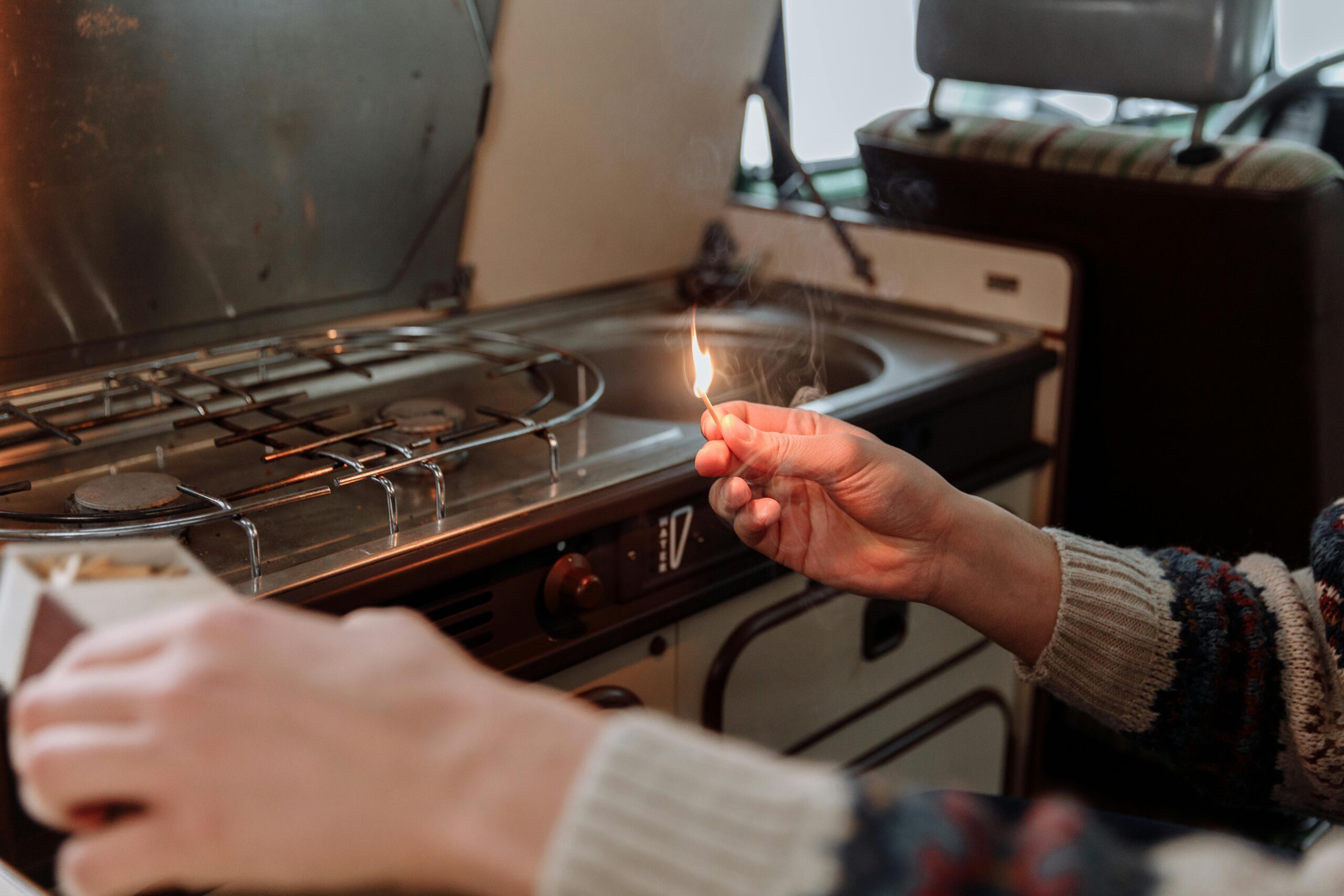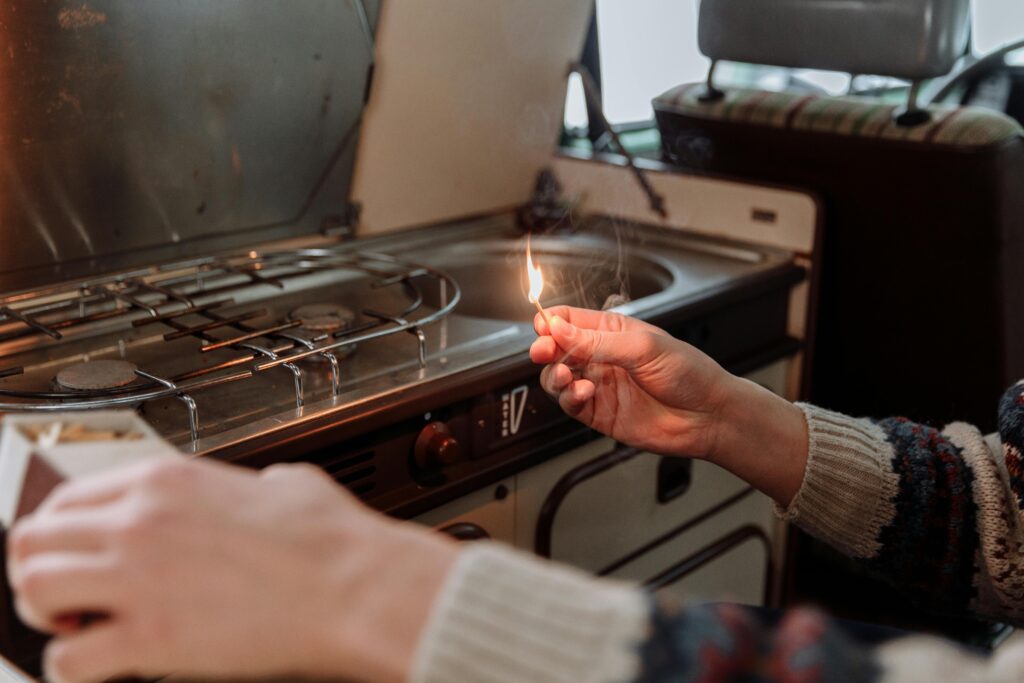Fire Safety 101: Essential Steps to Protect Your Home


During the colder months, we often retreat indoors, cozying up on the sofa with the fireplace on and flickering candles. In an effort to stay warm and save money on energy bills, many rely on various heating devices such as open fires, portable heaters, and electric blankets. While these can make winter more comfortable, they also pose potential fire hazards if not used carefully. To help keep you and your loved ones safe, here are some essential tips for protecting your home from fire risks.
Fireplaces
If you plan to light a fire, it’s important to hire a suitably qualified person to service your chimney. This will help to reduce the risk of chimney fires. These occur when carbon and dust deposits build up inside the chimney and are ignited by sparks or heat from an open fire.
The cleaning frequency depends on the type of fuel you use:
- Wood-burning fires: Clean the chimney at least four times a year
- Solid fuel fires: Clean once a year if using smokeless fuel and twice a year if burning coal
- Oil fires: Have the chimney cleaned annually during boiler servicing
- Gas fires: Include chimney cleaning as part of the annual boiler service
- Regular maintenance is essential to ensure safety and efficiency
When using a fireplace, it’s essential to follow key safety guidelines to protect your home and loved ones. Never use petrol or similar liquid fuels to start a fire, and only burn materials specifically designed for your fireplace or stove. Ensure proper ventilation in the room to prevent the build-up of harmful fumes from heating appliances. Always use a well-fitted spark guard in front of open fires to contain sparks and embers.
Keep the area around the fireplace clear of flammable items like newspapers, books, clothing, or other combustibles, and avoid drying clothes near an open fire. Placing a mirror above the fireplace is not recommended, as it can encourage people to stand too close to the heat. Lastly, dispose of hot ashes carefully in a metal bucket, never in plastic bins, to prevent accidental fires. Following these steps can help you enjoy the warmth of your fireplace safely.
Candles
When lighting candles in your home, it’s essential to follow these safety precautions. Always place candles in a fireproof container and on a heat-resistant surface. Ensure they are positioned in a way that minimises the risk of being knocked over. Never leave candles unattended, and keep them away from drafts. Be sure to place candles out of reach of children and pets, and avoid having any combustible materials nearby. It’s important that you always remember to extinguish them before you go to bed and avoid lighting them up in the evening when you may feel tired. Additionally, never place lit candles on top of televisions or other appliances. Never move a lit candle; always extinguish it and allow it to cool down before relocating it. Taking these simple steps can help you enjoy candles safely while reducing fire risks.
Portable Heaters
When using a portable heater, it’s important that you treat it with the same caution as you would a solid fuel fire. Always place a guard around the heater to prevent interference from children, pets, or others. Keep it away from combustible materials, such as furniture and curtains. Position the heater in a location where it cannot be easily knocked over. Avoid drying clothes on or near the heater, and keep flammable substances, including aerosols, adhesives, and cleaning products, at a safe distance. Never move a heater while it is on or still hot, as this can lead to accidents or burns. Following these precautions will help ensure safe use of your portable heater.
Cigarettes
For those who smoke, it’s crucial to take proper safety measures to reduce the risk of fire. Always ensure there are enough ashtrays in the room and empty them regularly, disposing of the contents carefully by running cold water over them. Avoid smoking when you’re feeling tired or after consuming alcohol, as dropped cigarette butts can remain lit for extended periods and potentially ignite a fire. Never leave lit cigarettes unattended, and always store matches and lighters in a secure place, out of reach of children. Taking these precautions can help ensure a safer environment for everyone.
Electricity
To reduce the risk of fire, avoid running appliances like washing machines, tumble dryers, dishwashers, or charging devices when you’re not at home or while you’re asleep at night. When cooking, refrain from consuming alcohol, and never leave the stove unattended. If you need to step away, turn off the cooker and remove any pans from the heat.
Be mindful not to overload electrical sockets, as this can lead to serious hazards. Warning signs of an overloaded socket include scorch marks, discolouration around the plug or socket, sparking appliances, or the smell of overheated plastic. If you require additional outlets, always hire a qualified electrician to install them safely. Lastly, ensure your appliances are equipped with the correct fuses to prevent electrical issues.
Keep flammable items like oven mitts, tea towels, and electrical cables away from the stove to prevent accidental fires. Make it a habit as part of your bedtime routine, to switch off electrical devices, including portable heaters and any extra charging cables, to ensure your home remains safe while you sleep.
Smoke alarms
Having functional smoke alarms on every level of your home is essential to ensure you’re alerted to a fire in time to escape safely. Installing a carbon monoxide detector in any room where gas or fuel-burning appliances are used can protect you and your family from the dangers of carbon monoxide poisoning. Regularly service boilers and gas appliances to maintain their safety and efficiency, and don’t forget to test all alarms frequently to ensure they are in proper working order.
Fire safety is an essential responsibility for every household. By following these practical tips—whether it’s maintaining your fireplace, using candles or heaters safely, being cautious with cigarettes, managing electrical appliances responsibly, or ensuring your home is equipped with functioning smoke alarms—you can significantly reduce the risk of fire in your home. Small actions like testing alarms, keeping flammable items at a safe distance, and adopting mindful habits can make a big difference. Prioritising fire safety not only protects your property but also safeguards the lives of your loved ones. Stay vigilant, stay prepared, and stay safe.
You might also like
For relevant updates on Emergency Services news and events, subscribe to EmergencyServices.ie








